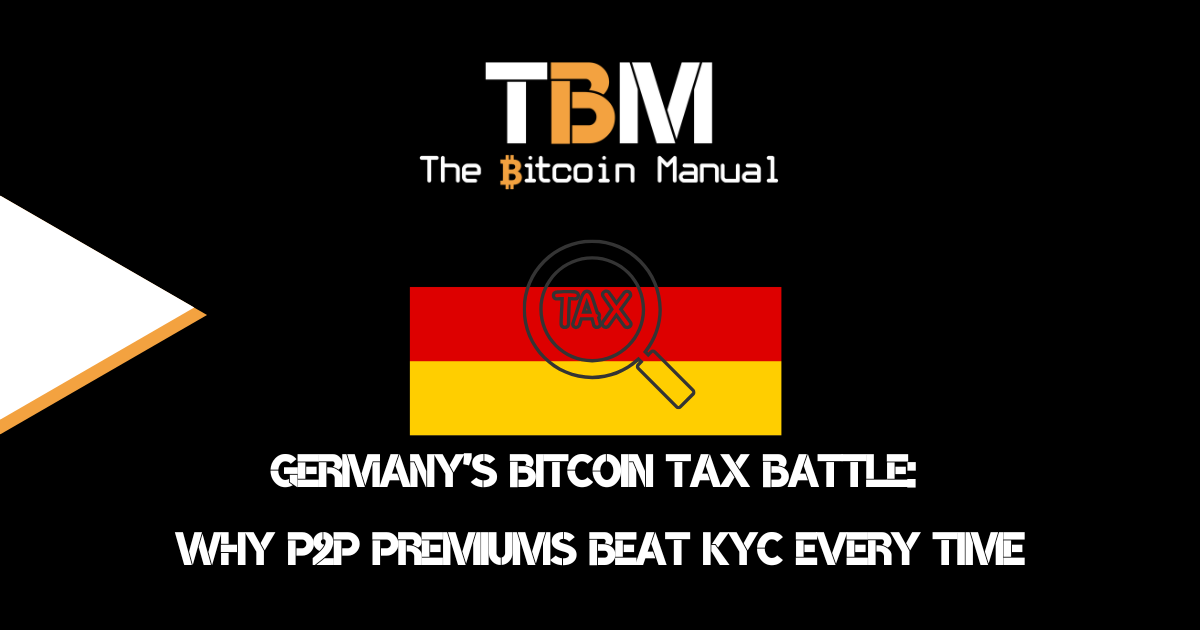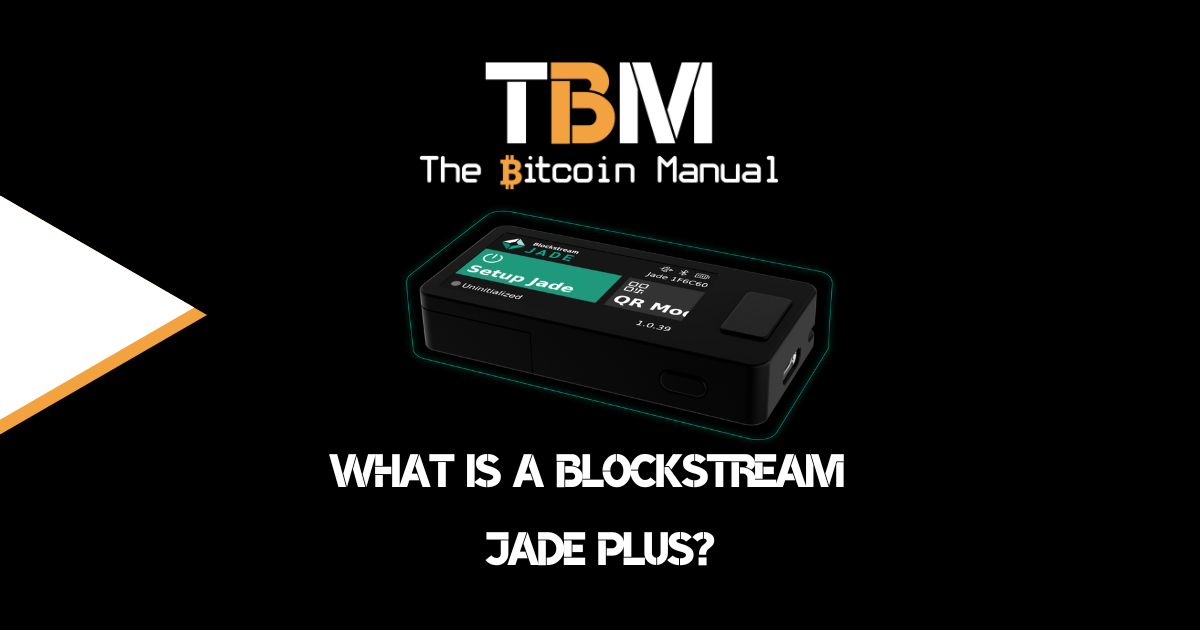Now that Bitcoin has reached the magical trillion-dollar asset class, investment institutions are starting to consider it a part of a reasonable portfolio allocation. Naturally, there will be those who are more accepting to risk and would be first through the door. Some institutions use the Grayscale Bitcoin Trust (GBTC), while others have been investing in Bitcoin mining companies or stocks that have Bitcoin on their balance sheet.
We’ve even heard rumours of index funds that will combine these into one product. Yes, the wall street investment shitfuckery and rehypothecation game is coming to Bitcoin.
If you’re a moonboy, you’re probably happy to hear more capital can flow into Bitcoin and pump your bags. If you’re a Bitcoiner, you’re not all too pleased about these paper Bitcoin products.
Regardless of where you stand, these products are coming, and if we see success on the early ETFs, more will undoubtedly spring up. So what exactly is a Bitcoin ETF, and why does it divide opinions in the Bitcoin space?
Let’s dive in and see, shall we?
What are Bitcoin ETFs?
Bitcoin ETFs are exchange-traded funds that track the value of Bitcoin and trade on traditional market exchanges rather than cryptocurrency exchanges. They allow investors to invest in Bitcoin without going through the hassle of using a cryptocurrency exchange while providing leverage to its price.
How does a Bitcoin ETF work?
An ETF (exchange-traded fund) is an investment fund that tracks the price of an underlying asset or index. Today, ETFs are available for several assets and industries, ranging from commodities to currencies.
A Bitcoin ETF would work the same way – the price of one share of the exchange-traded fund would fluctuate with the cost of Bitcoin. If Bitcoin increases in value, so should the ETF, and vice versa (Not always the case, but it should track closely).
Since an ETF is not a cryptocurrency but a regulated financial product, it would not trade on the cryptocurrency exchange, but the ETF would trade on a market exchange like the NYSE or TSX.
This gives traditional investors the opportunity to invest in Bitcoin or, rather, a Bitcoin backed product easily.
Who can invest in ETFs, and how do you trade them?
You don’t need to be an accredited investor to purchase ETFs. Anyone can invest in them. All you need to begin investing in ETFs is to set up an online brokerage account or download one of the many mobile trading apps.
From there, you’ll be able to buy and sell a wide range of ETFs that track the number of different markets.
Advantages of Bitcoin ETFs
So if you can own Bitcoin without much hassle if you have the knowlege, why would you consider an ETF instead?
Convenience.
Investing in a Bitcoin ETF provides leverage to the price of Bitcoin without having to learn about how Bitcoin works, having to sign up for a cryptocurrency exchange, and taking on the risks of owning Bitcoin directly. Since self custody of Bitcoin requires personal responsibility, those who don’t want to take ownership would prefer an ETF. Bitcoins held in a custodial wallet can be lost forever, while Bitcoin on an exchange also carries some risk.
A Bitcoin ETF simplifies the process of investing in Bitcoin since you purchase the paper contract as all the technical storage is done by trusted third parties.
Diversification.
An ETF can hold more than just one asset. For example, A Bitcoin ETF could comprise Bitcoin and other Bitcoin adjacent assets. Bitcoin mining stocks, Bitocin exchange stocks, and more—providing investors with the opportunity to mitigate risk and diversify their portfolios.
Similarly, by trading on a regulated market exchange, a Bitcoin ETF would provide investors with the chance to diversify their existing equity portfolios.
Tax efficiency.
Given that Bitcoin is unregulated and decentralized, the majority of the world’s tax havens and pension funds do not allow for purchases of Bitcoin. On the other hand, a Bitcoin ETF trading on traditional exchanges would likely be regulated by the SEC and eligible for tax efficiency.
Disadvantages of Bitcoin ETFs
Now ETF’s are by no means without their faults, and while traditional investors may like them, as they are an extension of what they are used to, they are by no means a superior product to self custody Bitcoin.
Management fees.
ETFs usually charge management fees for the convenience they provide. Since the fund has operational costs and they are custody your funds, it comes at a cost. Therefore, owning a significant amount of shares in a Bitcoin ETF could lead to high management fees over time.
On the contrary, holding Bitcoin in cold storage is the cost of a hardware wallet and the fees you pay on the exchange and on-chain to move it into self custody. All of these are once of fees, and you can custody as many BTC as you would like in your wallet or wallets.
ETF inaccuracy.
While ETFs track the price of an underlying asset, they can also have multiple holdings in a bid to diversify the portfolio. However, this suggests that a 50% rise in the price of Bitcoin may not be accurately reflected in the value of the exchange-traded fund due to its other holdings. Therefore, while an ETF provides leverage to Bitcoin’s price, but may or may not be an accurate tracker of its spot price.
Limits to your trading.
Bitcoin can be traded for other fiat currencies, cryptocurrencies or stable coins on hundreds of markets around the world. A Bitcoin ETF would not be eligible to exchange for other cryptos, as it is not a cryptocurrency but simply an investment fund that tracks the price of Bitcoin.
Lack of Bitcoin ownership.
Bitcoin serves as a hedge against central banks, fiat currencies, and equities. When you take control of your keys, you declare financial independence from governments and central banks.
It offers not only a hedge against the monetary policy or the poor operation of certain situations but can mitigate risks associated with the financial system. Bitcoin also protects users and investors by providing privacy through the Bitcoin blockchain.
A Bitcoin ETF would b regulated by the government and held on by a third party on your behalf, eliminating these benefits. An ETF is not Bitcoin. It is a promise of access to Bitcoin.
Third-party risk.
When you purchase an ETF, you are taking on the risk of the solvency of the issuer or the ETF and the third party they use to custody the Bitcoin. Each layer is a potential threat and should be priced accordingly in terms of risk.
Where do I find Bitcoin ETFs?
Yes, Bitcoin ETFs are becoming more common as the Bitcoin space gains popularity. There have been a few ETFs approved, most notably in Canada and Brazil.
Another example of a Bitcoin ETF is ProShares Bitcoin Strategy ETF (ticker: BITO), traded on the NYSEArca. The U.S. Securities and Exchange Commission (SEC) has blocked several other proposals for Bitcoin ETFs because the market is unregulated.
Most Bitcoin ETFs use futures to mimic the performance of the asset, but there are talks of spot ETS in the works.
Paper Bitcoin or the real thing, it’s your choice.
If you feel your risk in Bitcoin relies more on you as an individual and you don’t want to take personal responsibility for your coins, then an ETF could be a better option. If you think that these institutions are scum and trying to rent seek off of Bitcoin when you could hold it yourself at a far lower cost, then self custody Bitcoin is the better option.
Depending on what risk factor you think is higher will factor the majority in your decision making of which Bitcoin you should hold. Just remember, Bitcoin was created to be held by you and by holding an ETF, you effectively give your power back to the financial institution’s Bitcoin was designed to get away from and disintermediate.
There is also an opportunity cost loss involved through management fees and how they rebalance their fund. Where in the private case, you can pick the entry points you buy Bitcoin at and build a position for yourself.
By picking an ETF, you are only cheating yourself and removing some of the fundamental experiences that Bitcoin offers you. But this is a free market, and you’re free to make your choices.




